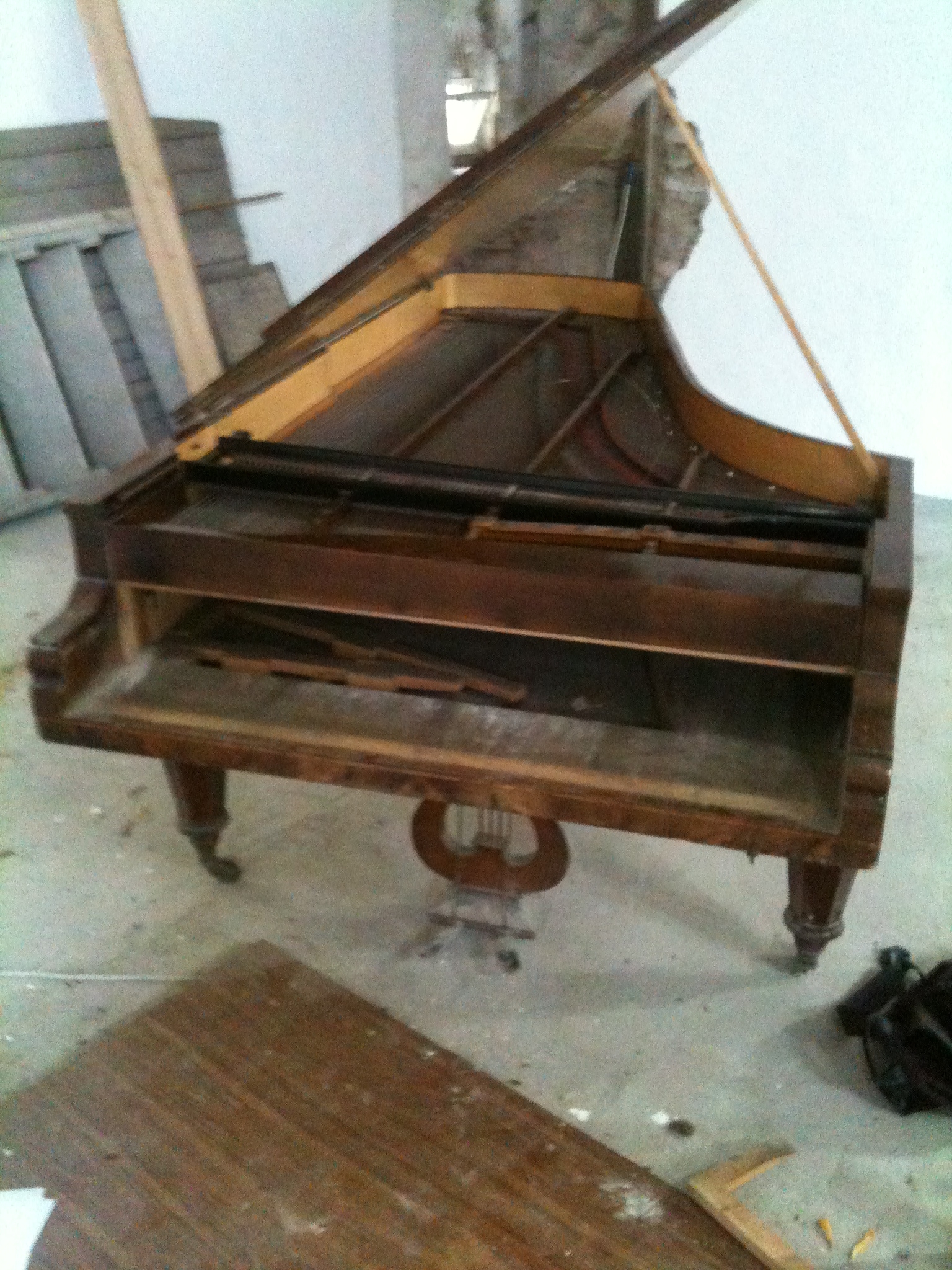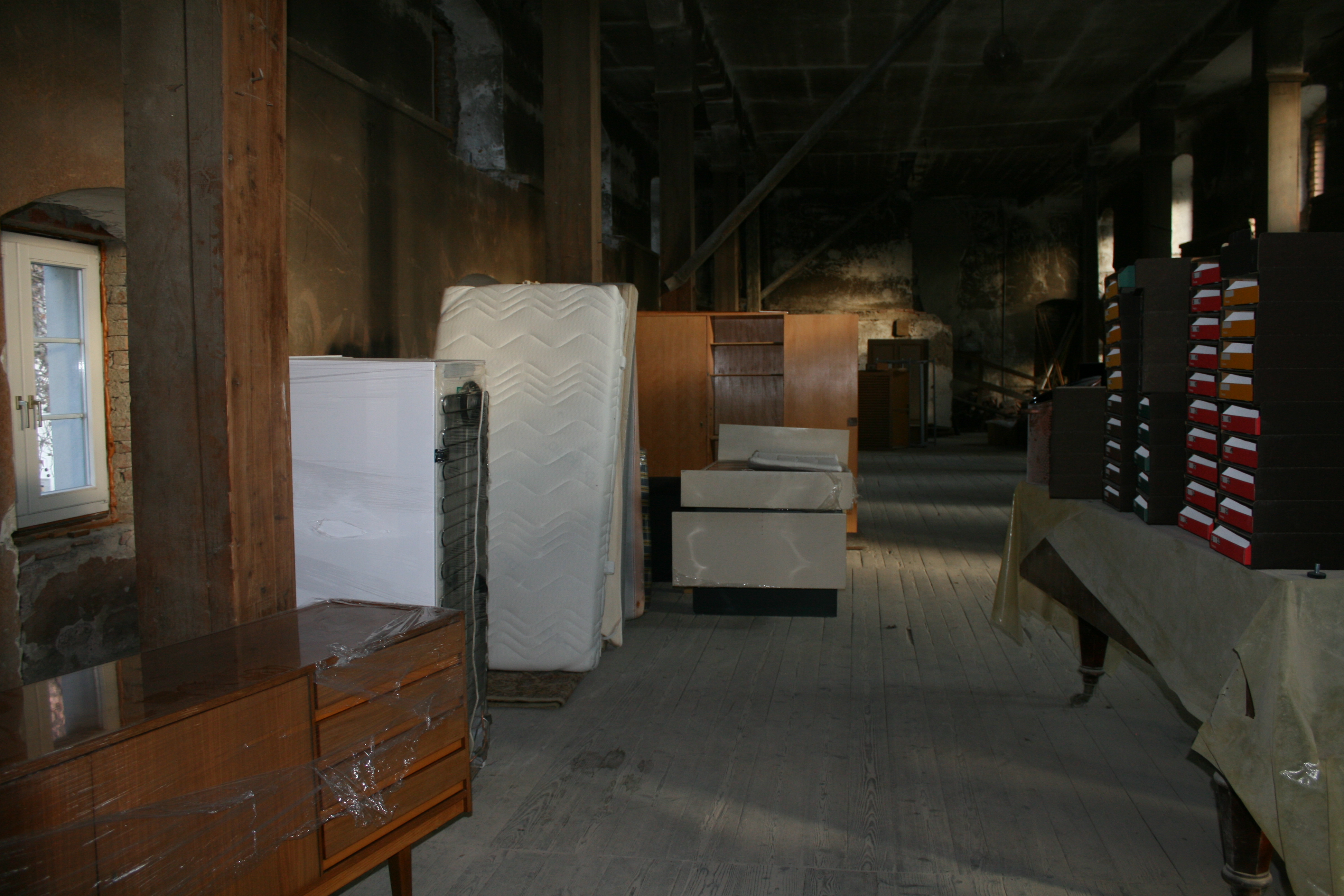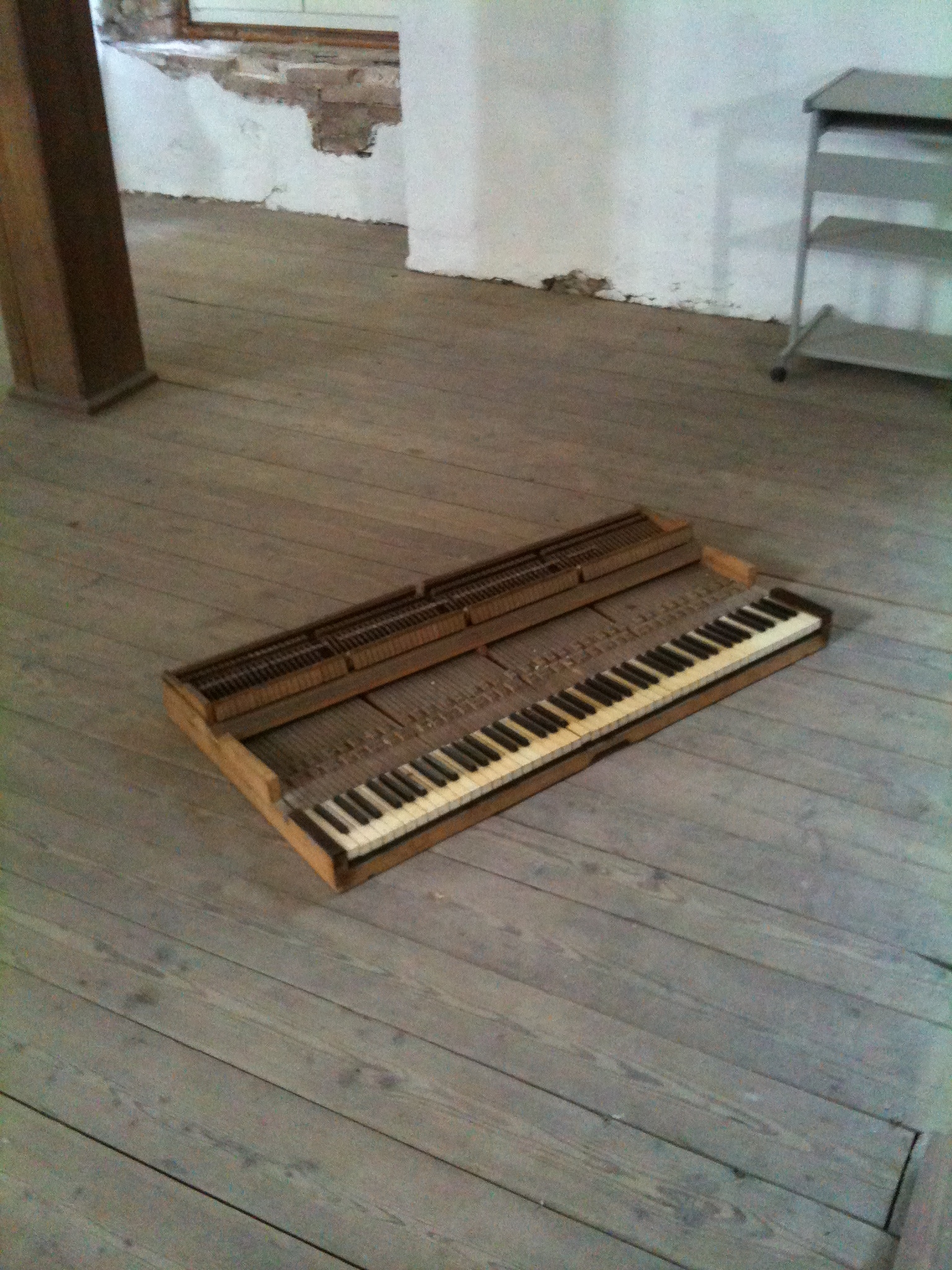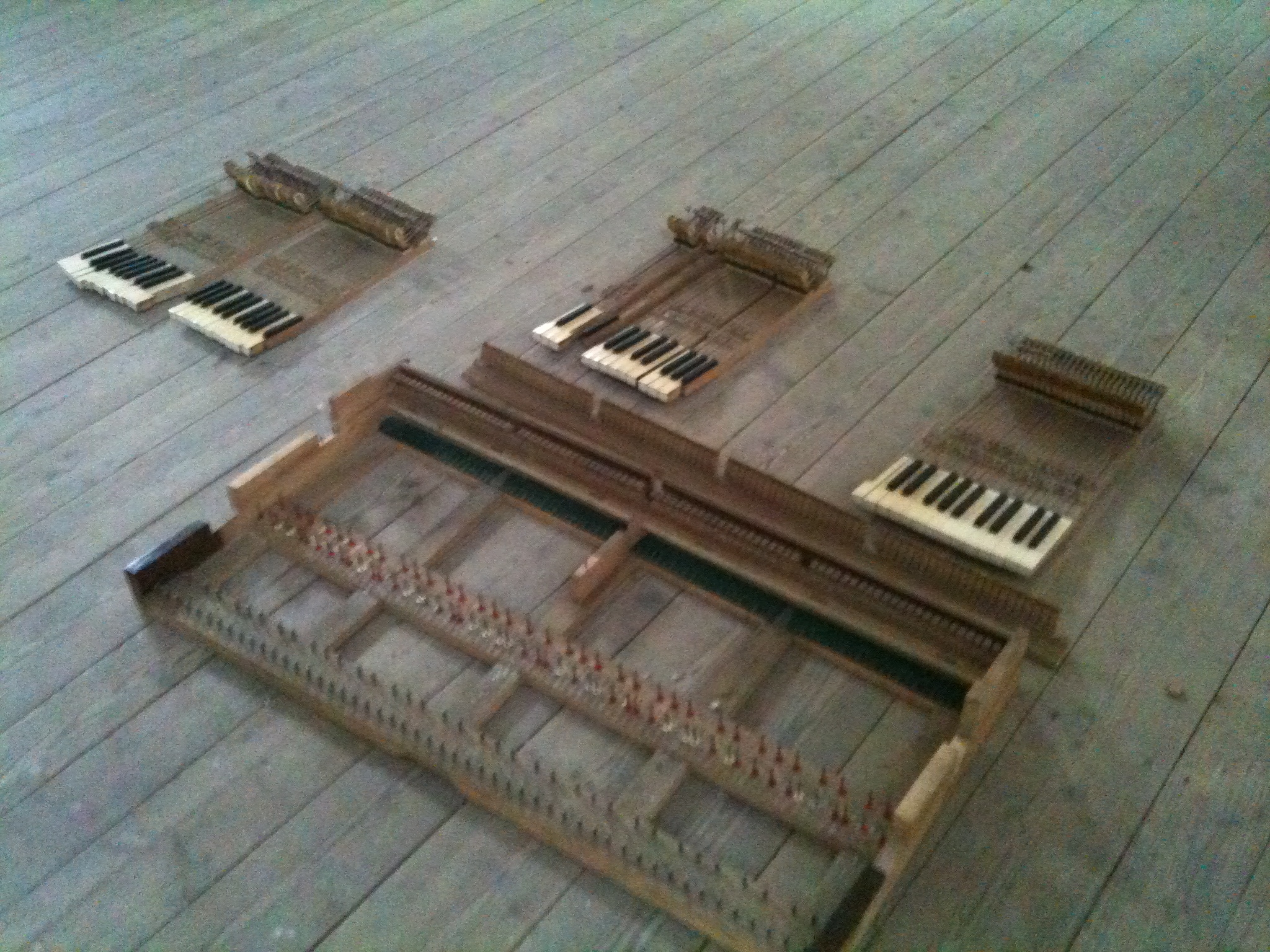
The beginning of the year brought to the ITI a number of students who have considerable musical abilities and talents, not least a number of pianists. Good use has been made of the upright in Moses Hall (a classroom) up to now in between classes and late into the evenings. But great pianistic talent must be matched by suitably grand instruments and unfortunately, despite the fervent prayers of many, until today the state of our pianos has remained unchanged.
The inventory of ITI pianos runs as follows; in our possession we have a small upright which spends its life in Moses Hall, and a boudoir grand built c.1880 currently living in somewhat forlorn conditions in the Russian Cinema.

The potential of both pianos is great, but the actuality is hampered in the upright by its tuning; in the grand, lamentations could be sung of the trials which the grand has been subjected to leaving it in its current derelict state.
Hope is stirring among pianists and music lovers alike though, and through the initiative of some of the pianists, work began on the grand piano a week ago.  Some intrepid dismantling led to the cleaning and dusting of the action of the grand piano. It appeared as though there was no life in it prior to cleaning, but the removal of decades of dust, grime and filth works wonders for tired old pianos. Interestingly, this grand piano has a Viennese action which was designed by Johann Andreas Stein in the 18th century. This type of action, in which the hammer faces the pianist, is very well suited to composers such as Bach, Haydn, Beethoven and composers from the same period. The more modern English action developed through the work of Americus Backers and later piano makers evolved it into its common form today with the invention of the repetition lever in the 19th century. The repetition lever allows for rapid successive striking of a key, something difficult to achieve with theVienna action, hence the suitability of different actions to different composers. Suffice it to say that the ITI has a grand piano steeped in history which could sound wonderful with some dedicated restoration.
Some intrepid dismantling led to the cleaning and dusting of the action of the grand piano. It appeared as though there was no life in it prior to cleaning, but the removal of decades of dust, grime and filth works wonders for tired old pianos. Interestingly, this grand piano has a Viennese action which was designed by Johann Andreas Stein in the 18th century. This type of action, in which the hammer faces the pianist, is very well suited to composers such as Bach, Haydn, Beethoven and composers from the same period. The more modern English action developed through the work of Americus Backers and later piano makers evolved it into its common form today with the invention of the repetition lever in the 19th century. The repetition lever allows for rapid successive striking of a key, something difficult to achieve with theVienna action, hence the suitability of different actions to different composers. Suffice it to say that the ITI has a grand piano steeped in history which could sound wonderful with some dedicated restoration.
At this very minute tuning is underway on the upright in Moses Hall and discussions are underway as to the restoration of the grand.

It is hoped that the grand piano will prove to be a centrepiece in the Russian Cinema and that fortnightly or monthly recitals will begin once the piano and room are in a suitable condition. In the meantime, while work progresses, the students will be grateful and pleased that the one playable piano has been tuned and the corridors will be brought to life with the sound of Chopin, Liszt, Bach and many other of the great composers of the classical tradition.